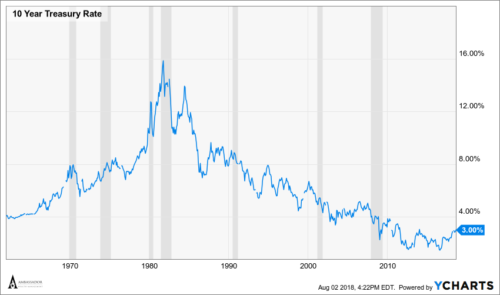Views on Fixed Income: Fixed Income as Ingredient, Not Total Solution (Part Three)
- Fixed income represents an ingredient, not a total solution, for conservative investors.
- Expensive valuations and shifting central bank policy might detract from the historical attractiveness of traditional fixed income.
- A mix of investments with income generation and reduced volatility potentially could help investors in the current environment.
We believe fixed income is an expensive asset class, but that does not mean investors should totally discard its use in diversified portfolios.
Current yields in nominal and real terms are near historic lows.

Foreigners hold roughly 6.3 trillion of the 20 trillion dollars in total public debt of the United States or roughly 30%.[1] Japan and China hold $1 trillion each and comprise the 2 largest foreign holders of Treasury debt. For context, the US Federal Reserve holds roughly $2.5 trillion.[2] Adding the numbers together, foreign nations and the Fed hold roughly 40% ($8.5 of $20 trillion) or 4 out of every 10 dollars of US Treasury debt. Monitoring the actions of these debt holders is crucial to forecasting the direction of interest rates on Treasuries.

The US Federal Reserve has indicated its preference to tighten short-term interest rates and eventually reduce its position in US Treasuries gradually over time.[3] Tighter domestic monetary policy might add greater volatility to bonds than the low levels of recent history.
China is another wild card in terms of future actions.
As the largest exporter to the US and the largest central bank in the world in terms of foreign reserves, China would appear to have a long-term interest in maintaining its current large position in US Treasury debt. If China were to reduce its Treasury position, it might potentially induce a sell-off in the US Dollar and currency appreciation in the yuan, a situation that could hurt profits for Chinese exporters. China’s large Treasury holdings possibly offer a hedge against the risk of rising trade protectionism from the US.
On the other hand, China might see political benefits in promoting greater use of its own currency in lieu of the US Dollar in foreign trade. For example, China is preparing to trade futures contracts on oil and gold denominated in its local currency. In theory, oil exporters such as Russia and Iran could bypass sanctions and trade in Yuan.[4]
Any reduction in China’s holdings in US Treasury debt potentially could add to bond market volatility.
[1] http://ticdata.treasury.gov/Publish/mfh.txt accessed on October 23, 2017.
[2] https://fred.stlouisfed.org/series/TREAST accessed on October 23, 2017.
[3] http://www.businessinsider.com/fed-statement-balance-sheet-interest-rates-september-meeting-2017-9 accessed on October 23, 2017.
[4] https://asia.nikkei.com/magazine/20170914/Business/China-aims-for-dollar-free-oil-trade?page=2 accessed on October 23, 2017.


